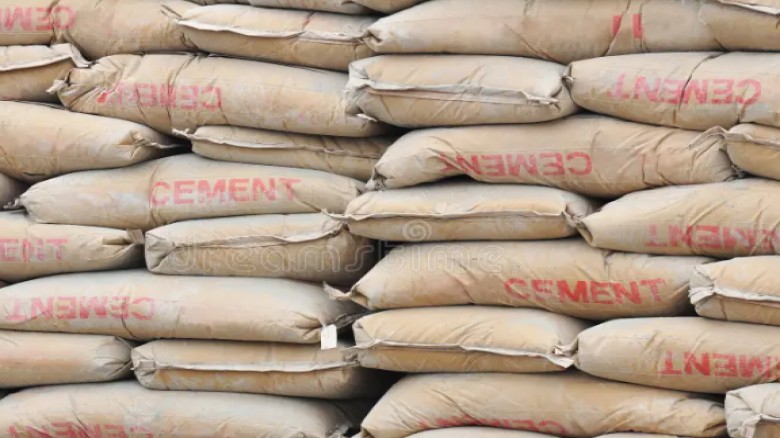Developers oppose the price of cement set at N8,000
Builders in the construction industry have disapproved of the agreement forged between the Federal Government and cement manufacturers. The resolution from the meeting suggests a reduction in cement prices to a range between N7,000 and N8,000.
Dr. Aliyu Wamakko, the President of the Real Estate Developers Association of Nigeria, expressed dissatisfaction with the reduction, stating, "I do not think that is good for the economy of this country because cement constitutes the primary product for any building construction to be done."
"The Chief Executive Officer of BUA Cement, Abdul Samad Rabiu, assured Nigerians that by January 1, 2024, the cement price would be reduced to N3,500, so what is the issue?"
He went on to highlight that the majority of the components used in cement production are locally sourced. "Why should the price be lowered to N8,000? Anything above N5,000 is not advantageous for the economy and would not contribute positively to addressing the 28 million housing deficit," he further explained.
Wamakko emphasized that the price needs to be reduced to N5,000 for any meaningful progress.
He stated, "At N8,000, most building projects in the country would remain unfinished. There should be a reassessment of abandoned buildings across the country, especially those from 2023.
"Given that 90 per cent of cement is sourced locally, I fail to comprehend why the price should rise to that extent."
Similarly, Toye Eniola, the Executive Secretary of the Association of Housing Corporation in Nigeria, criticized the negotiation, questioning, "What is fair about N7,000 to N8,000, when BUA promised us a reduction from over N5,500 to N3,500, and now they are negotiating N8,000? Where are we heading?"
"That negotiation is tailored for the affluent. What they are proposing is that, with that price, housing will become unaffordable for the poor. It will further widen the deficit gap.
"The solution lies in returning to the fundamentals. This is the opportune time to adopt local building materials. For example, we have interlocking blocks, which only require about 5 per cent of cement, leading to significant cost savings."
"The Nigerian Building and Road Research Institute have conducted extensive research on alternative building materials suitable for use in Nigeria. One notable example is their research on the use of bamboo as a substitute for iron rods."
Eniola emphasized that it's time for the country to prioritize local building materials over imported ones influenced by forex rates.
Sola Enitan, the CEO of Cromwell Professional Services International Limited, expressed dissatisfaction with the reduction.
He stated, "The reduction is inadequate. Manufacturers might believe they are saving people money, but as far as I am concerned, it's all nonsense. In just one month, cement prices surged from N5,000 to N8,000. I believe the government will start feeling the impact more because the cycle continues."
Enitan pointed out that if people cannot afford to build houses and there is an increase in rent, the latter part of 2024 and 2025 will be very challenging.
He concluded, "Rents will rise, and the government's intervention should be to construct all their bungalows without using cement extensively, so that cement manufacturers will also feel the impact."
In contrast, Jide Odusolu, the CEO of Octo5 Holdings, questioned the earlier pledge made by BUA Cement to reduce the cement price.
He remarked, "BUA made verbal promises, and I would like to know who or where they supplied cement at N3,500 per bag – we never received it, and we tried!
"Low-income earners should benefit from government-funded (not built) social housing stock."
He continued, "Reviewing the post-meeting report, it appears they attributed the cost increase to gas, poor roads, and transportation expenses. Personally, the only new element that might be justifiable is the gas cost.
"The government should collaborate with the Nigerian Gas Company and other gas producers to establish a mechanism for pricing gas for local use in naira."
"It is illogical that in 2024, a country still flaring gas finds it excessively costly for urgently needed local production. Secondly, we need to shift from depending on bagged cement and transition to concrete production."
On Monday, Cement Manufacturers reached an agreement to retail a 50kg bag of cement at prices ranging between N7,000 and N8,000, depending on the location nationwide.
























Leave A Comment